1. Algeri M, Conforti A, Pitisci A, Starc N, Tomao L, Bernardo ME, Locatelli F. Mesenchymal stromal cells and chronic inflammatory bowel disease. Immunol Lett. 2015; 168:191–200. DOI:
10.1016/j.imlet.2015.06.018. PMID:
26170204.

2. Silva AM, Teixeira JH, Almeida MI, Gonçalves RM, Barbosa MA, Santos SG. Extracellular vesicles: immunomodulatory messengers in the context of tissue repair/regeneration. Eur J Pharm Sci. 2017; 98:86–95. DOI:
10.1016/j.ejps.2016.09.017. PMID:
27644894.

3. Chang YH, Wu KC, Harn HJ, Lin SZ, Ding DC. Exosomes and stem cells in degenerative disease diagnosis and therapy. Cell Transplant. 2018; 27:349–363. DOI:
10.1177/0963689717723636. PMID:
29692195. PMCID:
PMC6038041.

5. Nojehdehi S, Soudi S, Hesampour A, Rasouli S, Soleimani M, Hashemi SM. Immunomodulatory effects of mesenchymal stem cell-derived exosomes on experimental type-1 autoimmune diabetes. J Cell Biochem. 2018; 119:9433–9443. DOI:
10.1002/jcb.27260. PMID:
30074271.

6. Casado JG, Blázquez R, Vela FJ, Álvarez V, Tarazona R, Sánchez-Margallo FM. Mesenchymal stem cell-derived exosomes: immunomodulatory evaluation in an antigen-induced synovitis porcine model. Front Vet Sci. 2017; 4:39. DOI:
10.3389/fvets.2017.00039. PMID:
28377922. PMCID:
PMC5359696.

7. Tamura R, Uemoto S, Tabata Y. Immunosuppressive effect of mesenchymal stem cell-derived exosomes on a concanavalin A-induced liver injury model. Inflamm Regen. 2016; 36:26. DOI:
10.1186/s41232-016-0030-5. PMID:
29259699. PMCID:
PMC5725906.

8. Conforti A, Scarsella M, Starc N, Giorda E, Biagini S, Proia A, Carsetti R, Locatelli F, Bernardo ME. Microvescicles derived from mesenchymal stromal cells are not as effective as their cellular counterpart in the ability to modulate immune responses in vitro. Stem Cells Dev. 2014; 23:2591–2599. DOI:
10.1089/scd.2014.0091. PMID:
24937591. PMCID:
PMC4201301.

9. Gouveia de Andrade AV, Bertolino G, Riewaldt J, Bieback K, Karbanová J, Odendahl M, Bornhäuser M, Schmitz M, Corbeil D, Tonn T. Extracellular vesicles secreted by bone marrow- and adipose tissue-derived mesenchymal stromal cells fail to suppress lymphocyte proliferation. Stem Cells Dev. 2015; 24:1374–1376. DOI:
10.1089/scd.2014.0563. PMID:
25779336.

10. Pachler K, Ketterl N, Desgeorges A, Dunai ZA, Laner-Plamberger S, Streif D, Strunk D, Rohde E, Gimona M. An in vitro potency assay for monitoring the immunomodulatory potential of stromal cell-derived extracellular vesicles. Int J Mol Sci. 2017; 18:pii: E1413. DOI:
10.3390/ijms18071413. PMID:
28671586. PMCID:
PMC5535905.

11. Chen W, Huang Y, Han J, Yu L, Li Y, Lu Z, Li H, Liu Z, Shi C, Duan F, Xiao Y. Immunomodulatory effects of mesenchymal stromal cells-derived exosome. Immunol Res. 2016; 64:831–840. DOI:
10.1007/s12026-016-8798-6. PMID:
27115513.

12. Cheng L, Zhang K, Wu S, Cui M, Xu T. Focus on mesenchymal stem cell-derived exosomes: opportunities and challenges in cell-free therapy. Stem Cells Int. 2017; 2017:6305295. DOI:
10.1155/2017/6305295. PMID:
29410682. PMCID:
PMC5749272.

13. Phinney DG, Pittenger MF. Concise review: MSC-derived exosomes for cell-free therapy. Stem Cells. 2017; 35:851–858. DOI:
10.1002/stem.2575. PMID:
28294454.

14. Motavaf M, Pakravan K, Babashah S, Malekvandfard F, Masoumi M, Sadeghizadeh M. Therapeutic application of mesenchymal stem cell-derived exosomes: a promising cell-free therapeutic strategy in regenerative medicine. Cell Mol Biol (Noisy-le-grand). 2016; 62:74–79. PMID:
27453276.
15. Konala VB, Mamidi MK, Bhonde R, Das AK, Pochampally R, Pal R. The current landscape of the mesenchymal stromal cell secretome: a new paradigm for cell-free regeneration. Cytotherapy. 2016; 18:13–24. DOI:
10.1016/j.jcyt.2015.10.008. PMID:
26631828. PMCID:
PMC4924535.

16. Pouya S, Heidari M, Baghaei K, Asadzadeh Aghdaei H, Moradi A, Namaki S, Zali MR, Hashemi SM. Study the effects of mesenchymal stem cell conditioned medium injection in mouse model of acute colitis. Int Immunopharmacol. 2018; 54:86–94. DOI:
10.1016/j.intimp.2017.11.001. PMID:
29112894.

17. Heidari M, Pouya S, Baghaei K, Aghdaei HA, Namaki S, Zali MR, Hashemi SM. The immunomodulatory effects of adipose-derived mesenchymal stem cells and mesenchymal stem cells-conditioned medium in chronic colitis. J Cell Physiol. 2018; 233:8754–8766. DOI:
10.1002/jcp.26765. PMID:
29797577.

18. Song JY, Kang HJ, Hong JS, Kim CJ, Shim JY, Lee CW, Choi J. Umbilical cord-derived mesenchymal stem cell extracts reduce colitis in mice by re-polarizing intestinal macrophages. Sci Rep. 2017; 7:9412. DOI:
10.1038/s41598-017-09827-5. PMID:
28842625. PMCID:
PMC5573412.

19. Miyamoto S, Ohnishi S, Onishi R, Tsuchiya I, Hosono H, Katsurada T, Yamahara K, Takeda H, Sakamoto N. Therapeutic effects of human amnion-derived mesenchymal stem cell transplantation and conditioned medium enema in rats with trinitrobenzene sulfonic acid-induced colitis. Am J Transl Res. 2017; 9:940–952. PMID:
28386323. PMCID:
PMC5375988.
20. van der Valk J, Bieback K, Buta C, Cochrane B, Dirks WG, Fu J, Hickman JJ, Hohensee C, Kolar R, Liebsch M, Pistollato F, Schulz M, Thieme D, Weber T, Wiest J, Winkler S, Gstraunthaler G. Fetal Bovine Serum (FBS): past - present - future. ALTEX. 2018; 35:99–118. DOI:
10.14573/altex.1705101. PMID:
28800376.

21. Spees JL, Gregory CA, Singh H, Tucker HA, Peister A, Lynch PJ, Hsu SC, Smith J, Prockop DJ. Internalized antigens must be removed to prepare hypoimmunogenic mesenchymal stem cells for cell and gene therapy. Mol Ther. 2004; 9:747–756. DOI:
10.1016/j.ymthe.2004.02.012. PMID:
15120336.

22. Sundin M, Ringdén O, Sundberg B, Nava S, Götherström C, Le Blanc K. No alloantibodies against mesenchymal stromal cells, but presence of anti-fetal calf serum antibodies, after transplantation in allogeneic hematopoietic stem cell recipients. Haematologica. 2007; 92:1208–1215. DOI:
10.3324/haematol.11446. PMID:
17666368.

23. Tonti GA, Mannello F. From bone marrow to therapeutic applications: different behaviour and genetic/epigenetic stability during mesenchymal stem cell expansion in autologous and foetal bovine sera? Int J Dev Biol. 2008; 52:1023–1032. DOI:
10.1387/ijdb.082725gt. PMID:
18956335.

24. Owens SD, Kol A, Walker NJ, Borjesson DL. Allogeneic mesenchymal stem cell treatment induces specific alloantibodies in horses. Stem Cells Int. 2016; 2016:5830103. DOI:
10.1155/2016/5830103. PMID:
27648075. PMCID:
PMC5018342.

25. Solomon J, Csontos L, Clarke D, Bonyhadi M, Zylberberg C, McNiece I, Kurtzberg J, Bell R, Deans R. Current perspectives on the use of ancillary materials for the manufacture of cellular therapies. Cytotherapy. 2016; 18:1–12. DOI:
10.1016/j.jcyt.2015.09.010. PMID:
26596503.

26. Pachler K, Lener T, Streif D, Dunai ZA, Desgeorges A, Feichtner M, Öller M, Schallmoser K, Rohde E, Gimona M. A good manufacturing practice-grade standard protocol for exclusively human mesenchymal stromal cell-derived extracellular vesicles. Cytotherapy. 2017; 19:458–472. DOI:
10.1016/j.jcyt.2017.01.001. PMID:
28188071.

27. van der Valk J, Brunner D, De Smet K, Fex Svenningsen A, Honegger P, Knudsen LE, Lindl T, Noraberg J, Price A, Scarino ML, Gstraunthaler G. Optimization of chemically defined cell culture media--replacing fetal bovine serum in mammalian in vitro methods. Toxicol In Vitro. 2010; 24:1053–1063. DOI:
10.1016/j.tiv.2010.03.016. PMID:
20362047.

28. Wu X, Kang H, Liu X, Gao J, Zhao K, Ma Z. Serum and xeno-free, chemically defined, no-plate-coating-based culture system for mesenchymal stromal cells from the umbilical cord. Cell Prolif. 2016; 49:579–588. DOI:
10.1111/cpr.12279. PMID:
27492579.

29. Jo W, Kim J, Yoon J, Jeong D, Cho S, Jeong H, Yoon YJ, Kim SC, Gho YS, Park J. Large-scale generation of cell-derived nanovesicles. Nanoscale. 2014; 6:12056–12064. DOI:
10.1039/C4NR02391A. PMID:
25189198.

30. Madrigal M, Rao KS, Riordan NH. A review of therapeutic effects of mesenchymal stem cell secretions and induction of secretory modification by different culture methods. J Transl Med. 2014; 12:260. DOI:
10.1186/s12967-014-0260-8. PMID:
25304688. PMCID:
PMC4197270.

31. Börger V, Bremer M, Ferrer-Tur R, Gockeln L, Stambouli O, Becic A, Giebel B. Mesenchymal stem/stromal cell-derived extracellular vesicles and their potential as novel immunomodulatory therapeutic agents. Int J Mol Sci. 2017; 18:pii: E1450. DOI:
10.3390/ijms18071450. PMID:
28684664. PMCID:
PMC5535941.

32. Cosenza S, Toupet K, Maumus M, Luz-Crawford P, Blanc-Brude O, Jorgensen C, Noël D. Mesenchymal stem cells-derived exosomes are more immunosuppressive than microparticles in inflammatory arthritis. Theranostics. 2018; 8:1399–1410. DOI:
10.7150/thno.21072. PMID:
29507629. PMCID:
PMC5835945.

33. Yang J, Liu XX, Fan H, Tang Q, Shou ZX, Zuo DM, Zou Z, Xu M, Chen QY, Peng Y, Deng SJ, Liu YJ. Extracellular vesicles derived from bone marrow mesenchymal stem cells protect against experimental colitis via attenuating colon inflammation, oxidative stress and apoptosis. PLoS One. 2015; 10:e0140551. DOI:
10.1371/journal.pone.0140551. PMID:
26469068. PMCID:
PMC4607447.

34. Nikolic A, Simovic Markovic B, Gazdic M, Randall Harrell C, Fellabaum C, Jovicic N, Djonov V, Arsenijevic N, L Lukic M, Stojkovic M, Volarevic V. Intraperitoneal administration of mesenchymal stem cells ameliorates acute dextran sulfate sodium-induced colitis by suppressing dendritic cells. Biomed Pharmacother. 2018; 100:426–432. DOI:
10.1016/j.biopha.2018.02.060. PMID:
29471245.

35. Legaki E, Roubelakis MG, Theodoropoulos GE, Lazaris A, Kollia A, Karamanolis G, Marinos E, Gazouli M. Therapeutic potential of secreted molecules derived from human amniotic fluid mesenchymal stem/stroma cells in a mice model of colitis. Stem Cell Rev. 2016; 12:604–612. DOI:
10.1007/s12015-016-9677-1. PMID:
27503204.

36. Lou G, Chen Z, Zheng M, Liu Y. Mesenchymal stem cell-derived exosomes as a new therapeutic strategy for liver diseases. Exp Mol Med. 2017; 49:e346. DOI:
10.1038/emm.2017.63. PMID:
28620221. PMCID:
PMC5519012.

37. Safari S, Malekvandfard F, Babashah S, Alizadehasl A, Sadeghizadeh M, Motavaf M. Mesenchymal stem cell-derived exosomes: a novel potential therapeutic avenue for cardiac regeneration. Cell Mol Biol (Noisy-le-grand). 2016; 62:66–73. PMID:
27453275.
39. Tsao CR, Liao MF, Wang MH, Cheng CM, Chen CH. Mesenchymal stem cell derived exosomes: a new hope for the treatment of cardiovascular disease? Acta Cardiol Sin. 2014; 30:395–400. PMID:
27122816. PMCID:
PMC4834956.
40. Park HJ, Kim J, Saima FT, Rhee KJ, Hwang S, Kim MY, Baik SK, Eom YW, Kim HS. Adipose-derived stem cells ameliorate colitis by suppression of inflammasome formation and regulation of M1-macrophage population through prostaglandin E2. Biochem Biophys Res Commun. 2018; 498:988–995. DOI:
10.1016/j.bbrc.2018.03.096. PMID:
29550474.

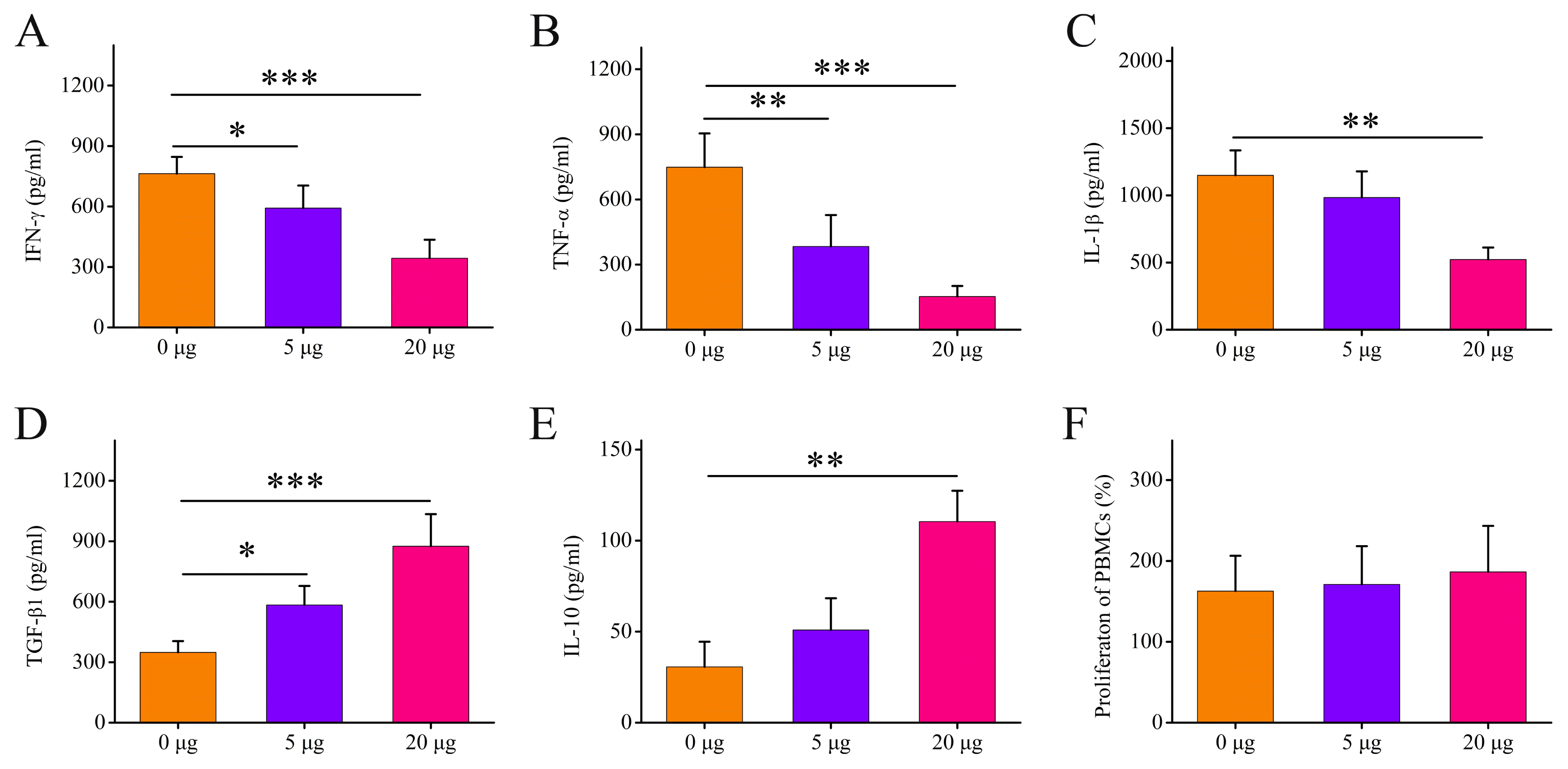
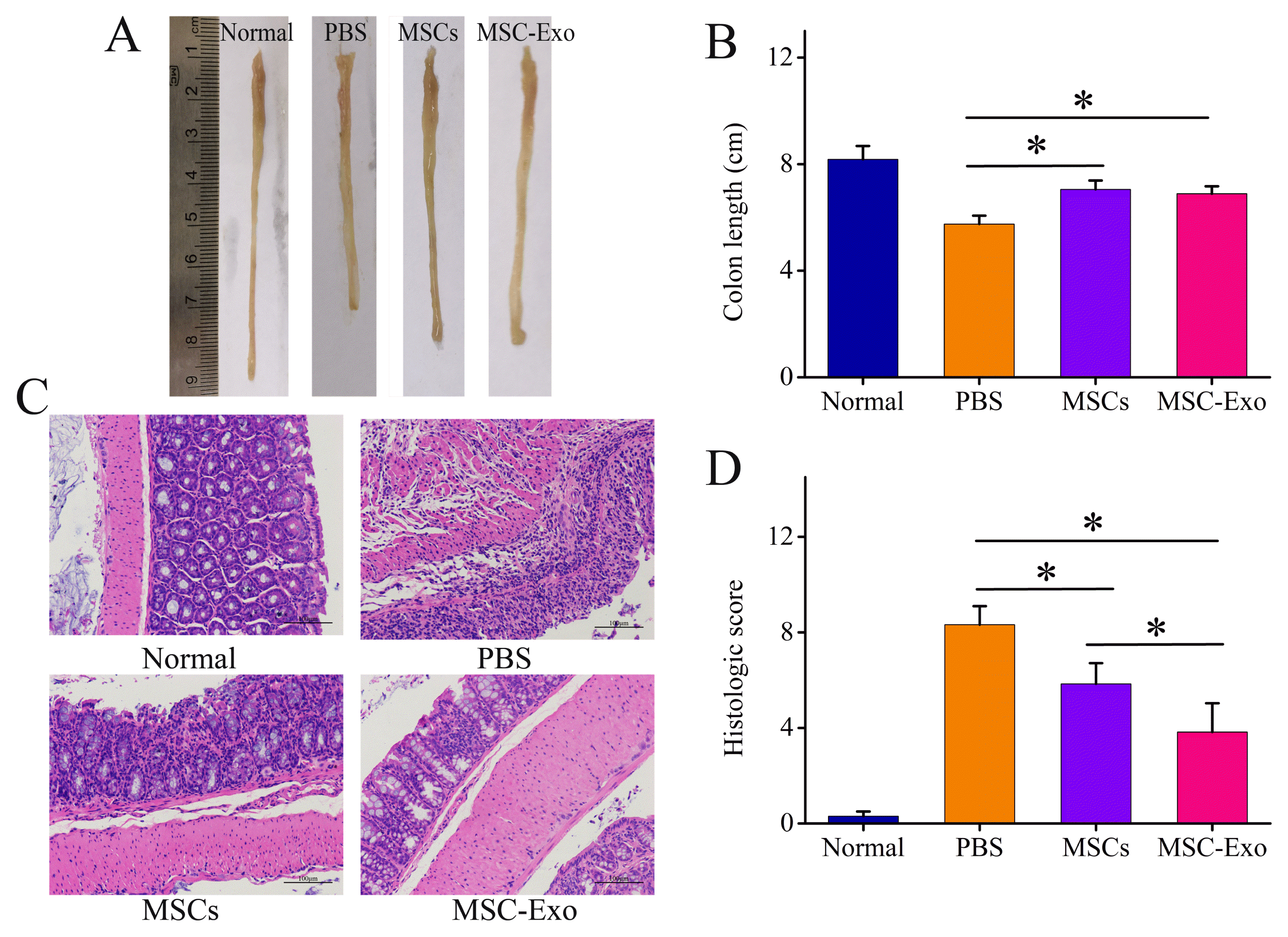
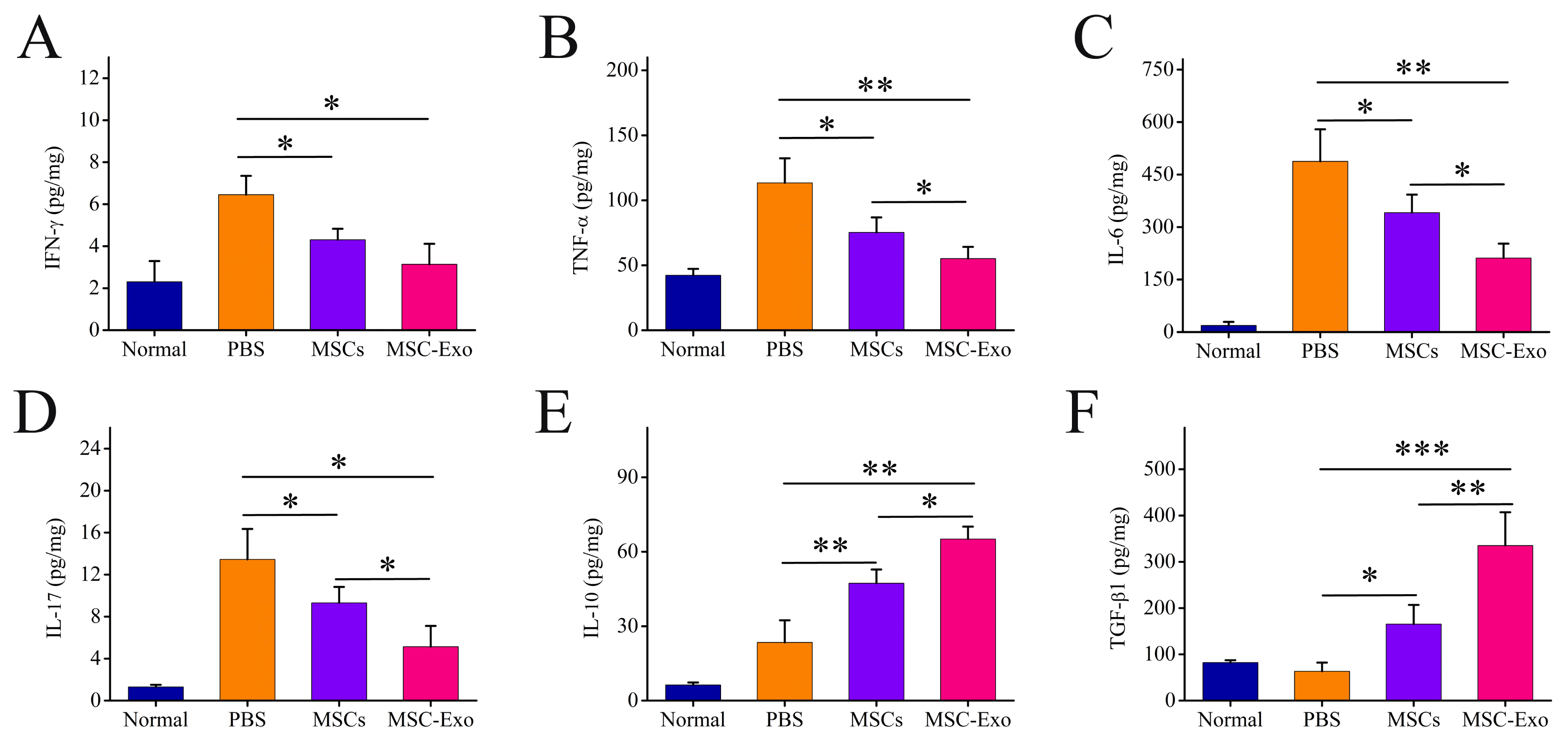




 PDF
PDF Citation
Citation Print
Print


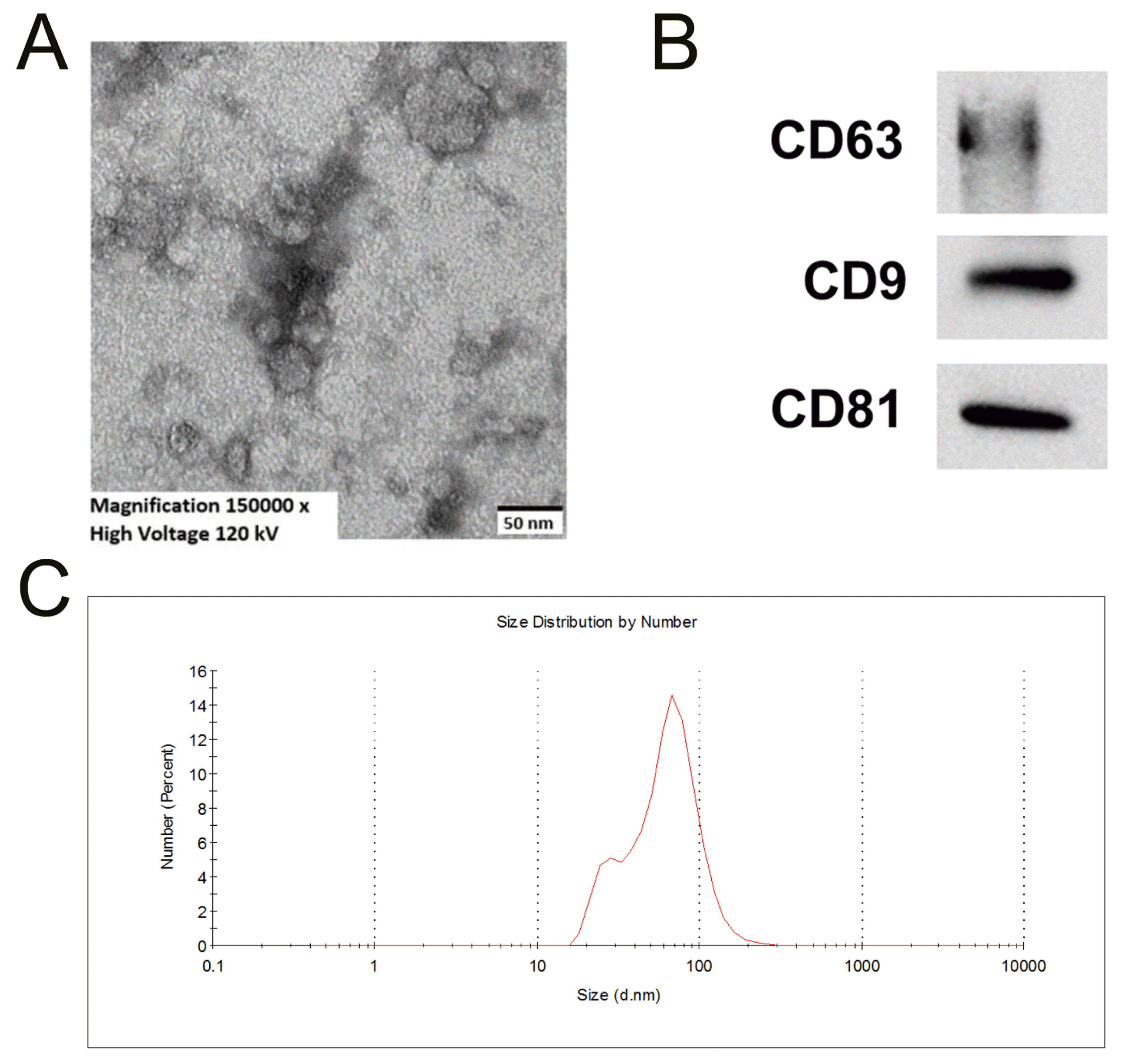
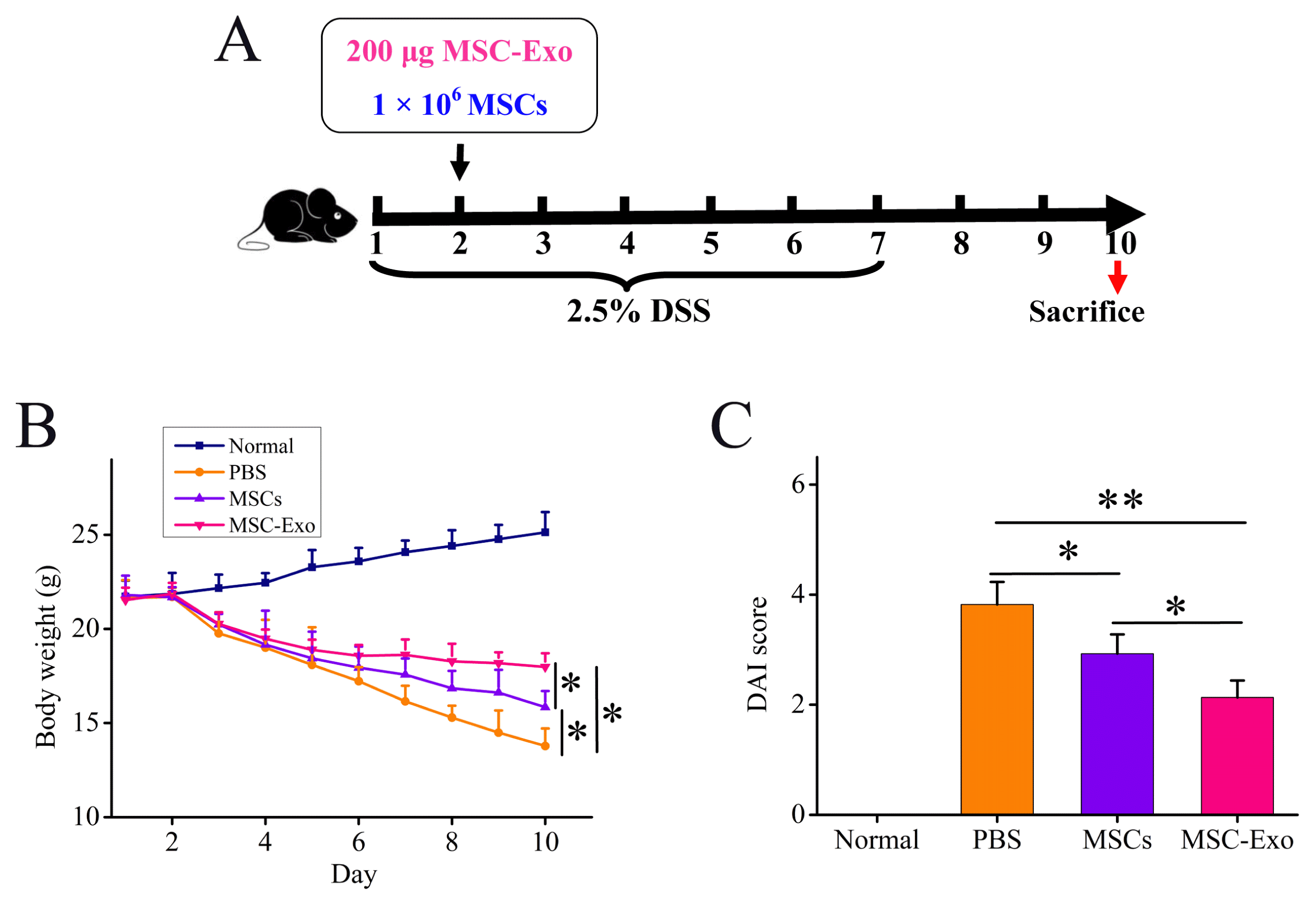
 XML Download
XML Download